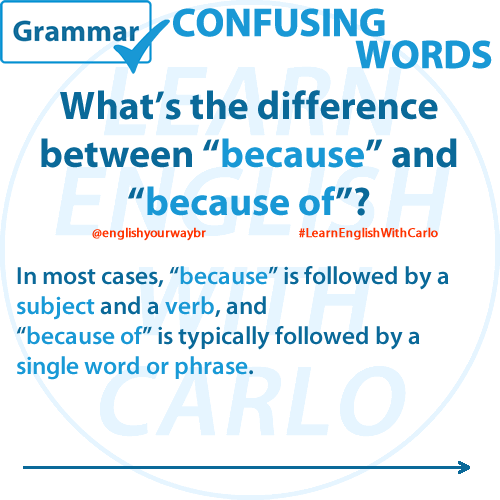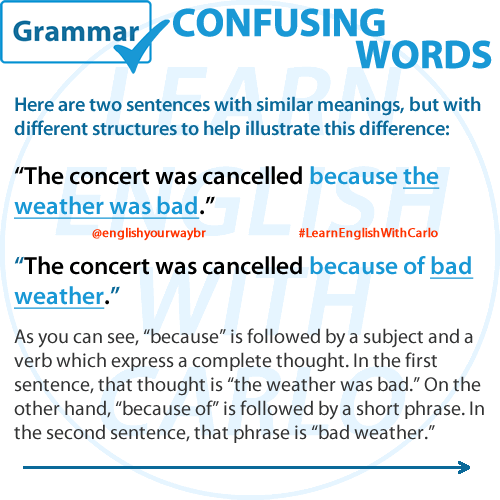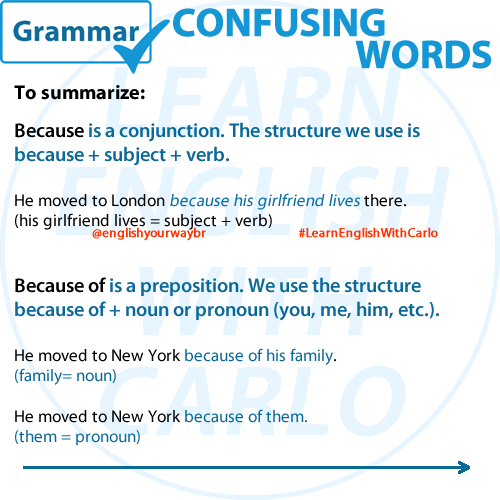What’s the difference between “because” and “because of”?
In most cases, “because” is followed by a subject and a verb, and “because of” is typically followed by a single word or phrase.
Here are two sentences with similar meanings, but with different structures to help illustrate this difference:
“The concert was canceled because the weather was bad”
“The concert was canceled because of bad weather.”
As you can see, “because” is followed by a subject and a verb which express a complete thought. In the first sentence, that thought is “the weather was bad.” On the other hand, “because of” is followed by a short phrase. In the second sentence, that phrase is “bad weather.”
To summarize:
Because is a conjunction. The structure we use is
because + subject + verb.
He moved to London because his girlfriend lives there.
(his girlfriend lives = subject + verb)
Because of is a preposition. We use the structure
because of + noun or pronoun (you, me, him, etc.).
He moved to New York because of his family.
(family = noun)
He moved to New York because of them.
(them = pronoun)



